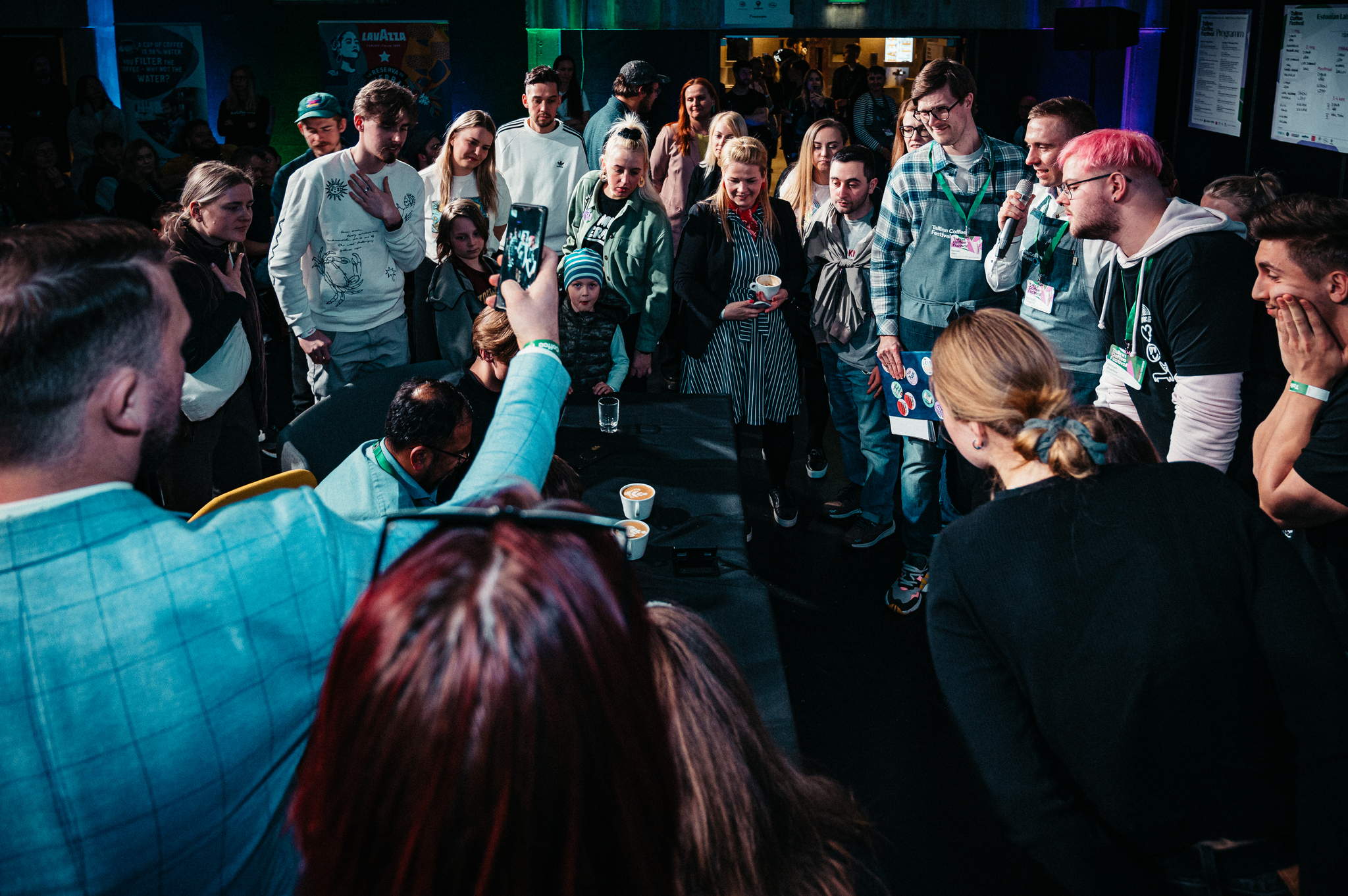
marekmetslaid_
This year, the Tallinn Coffee Festival will be held for the eighth time. The festival is the biggest and most up-to-the-minute coffee event in the Baltic states. In addition, visitors can find specialty teas, chocolate and cocoa, as well as artisanal pastry shops, bean to bar chocolate makers and several beverage producers presenting their original creations.
The festival takes place in the inspiring industrial atmosphere of the Creative Hub (Kultuurikatel), which is situated in the renovated buildings of a power station built more than a hundred years ago and one of the most special event locations and creative centers in Northern Europe. The venue’s universal and flexible spatial plan offers plenty of opportunities for the organizers and creates an inspiring background for the event. Its visual appeal also makes it particularly Instagram-friendly – a bonus for many visitors. The first “cultural explosion” shook the former power station when Andrei Tarkovsky shot his cult movie “Stalker” there in 1977. Now, the gate that was an entrance to the mystical world of the Zone in the movie leads to the no less mystical world of coffee.
In its early years, the festival involved only local companies. Today it has become an international event, attracting attention from specialists in neighboring countries, especially Finland and Latvia. Around 60 exhibitors participate in the event, and it draws up to 5,000 visitors. Given the relatively small size of Estonia and Tallinn, TLNCF does not compete with big city events in terms of the number of participants or represented companies, but it does measure up to them when it comes to content. The venue is an attraction in its own right, and thanks to the special rooms in the Creative Hub, the festival is cozy and easy to take in.
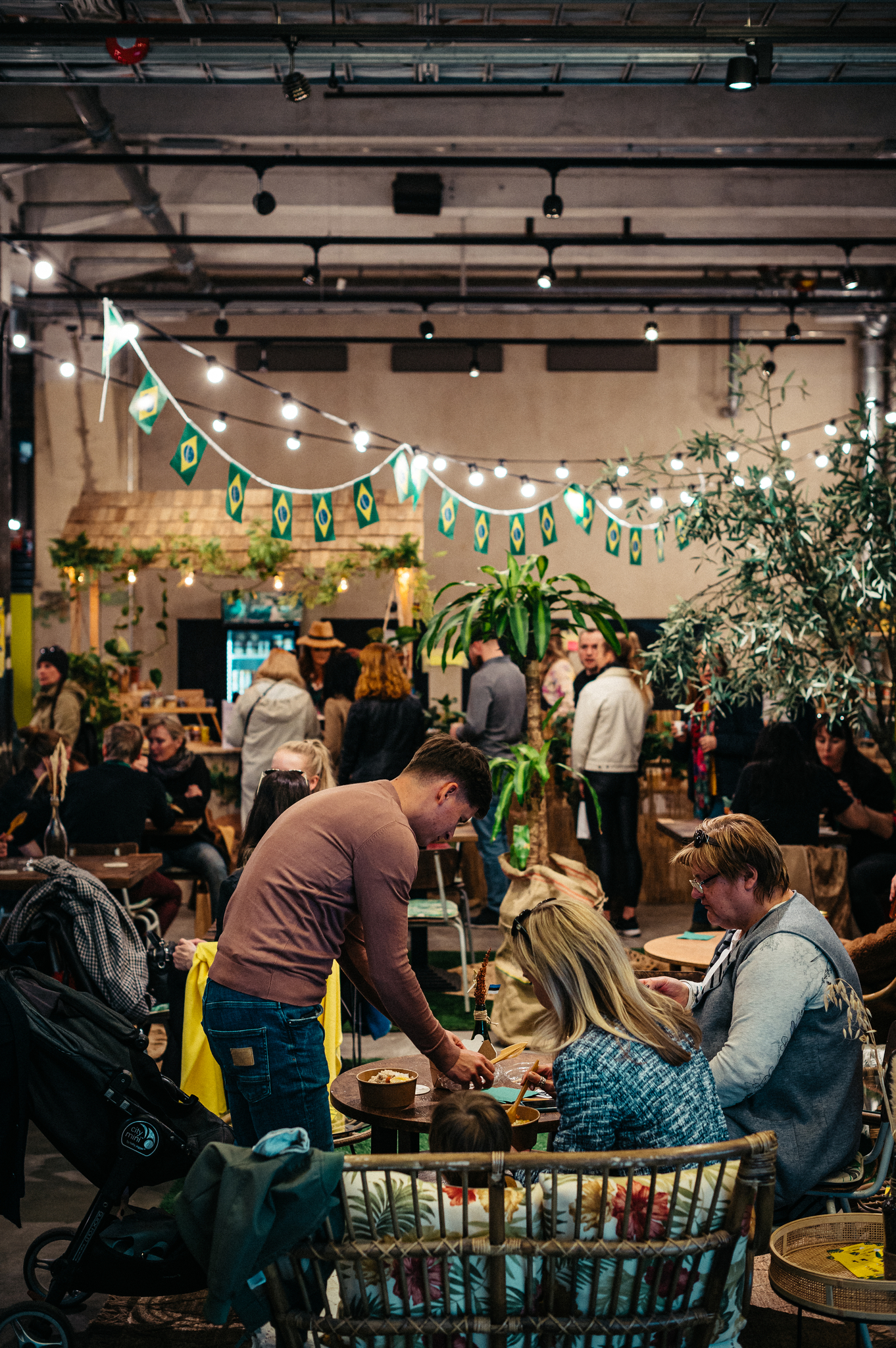
marekmetslaid_
Kennet Sarv, the festival’s organizer, believes that the event owes the quality of its program to an informed and innovative Estonian consumer who can appreciate the many nuances of the taste of coffee. The exhibitors also know how to appreciate a curious visitor: answering questions in depth and detail, valuing the customer’s time and presence, and always treating them with complete professionalism. In addition to the hunt for knowledge and new tastes, it is also pleasant to spend some time in such a relaxed atmosphere. The event attracts a wide clientele, from hipsters to retirees, from simple coffee lovers to top specialists from the profession.
The roots of coffee culture in Estonia go very deep – the first coffee shop opened in the Hanseatic League city of Narva already in 1697, only a few decades after the big European cities of Paris and London. The half-a-century-long interruption of (coffee) culture caused by the Soviet occupation ended with the restoration of Estonia’s independence and has now disappeared into the past. Today, the average Estonian consumes 5.5 kg of coffee per year, which, in a global context, makes them exemplary coffee lovers.
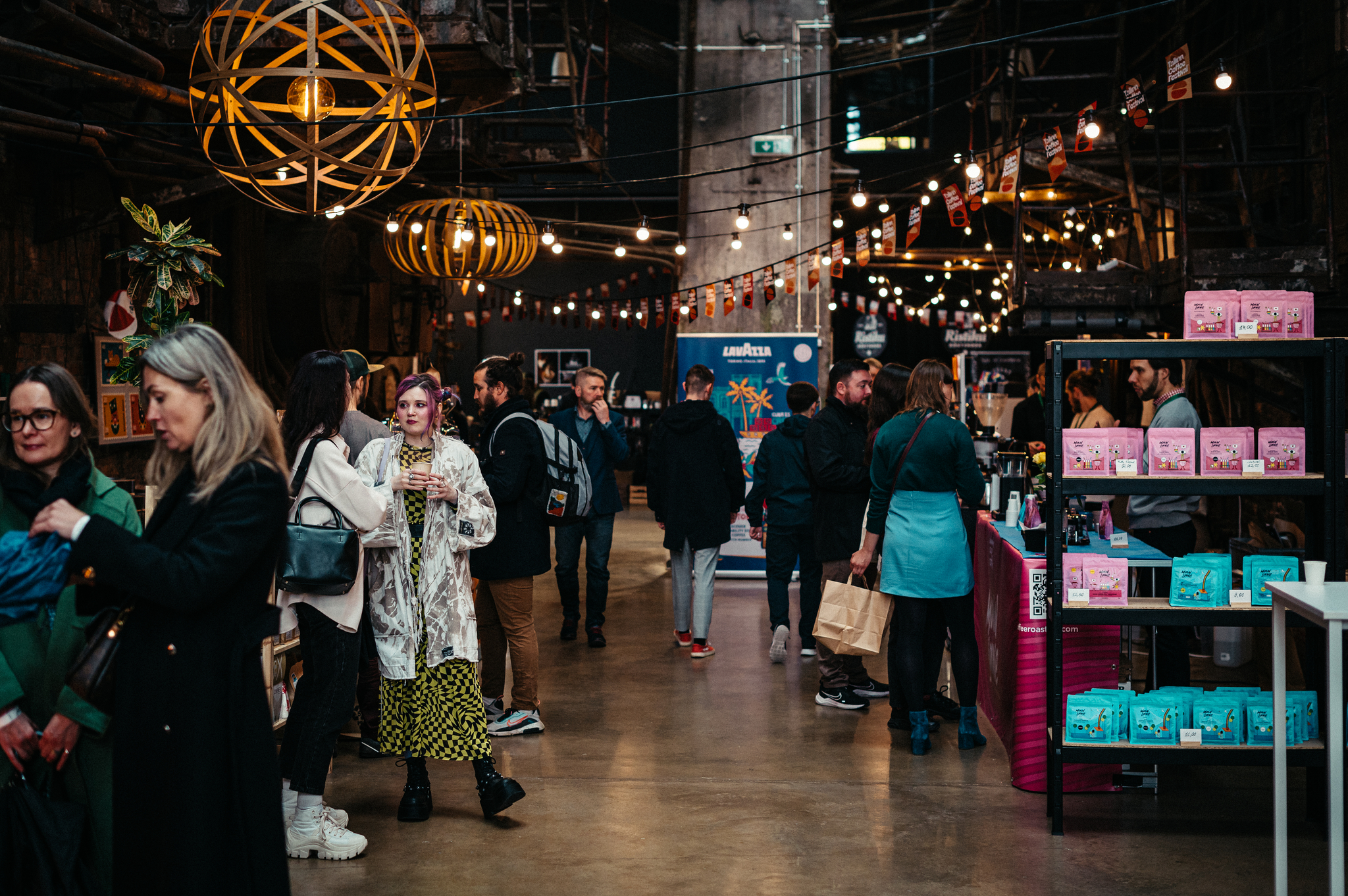
marekmetslaid_
This year’s news
For the first time, this year’s festival offers only reusable tableware, with the requirement applying to not just coffee cups but all dishes and utensils, from plates to spoons. The necessity of recycling now goes without saying. And this green thinking is evident in, for example, how the coffee grounds from the festival are collected and sent to the Tallinn Botanical Garden to be used to cultivate plants. Sustainability and responsibility are keywords for the exhibitors, too: having the shortest and most transparent supply chains for coffee beans and recyclable packaging have both become essential.
In other news, the Creative Hub earned the Green Key eco-label in 2023, when Tallinn was the European Green Capital. The Green Key label confirms that the Creative Hub and all its events follow the principles of environmentally friendly and sustainable development across their daily operations.
Every year, the consumers of the world grow more aware of coffee. One example of this is the growing interest in cold brew coffee, which has had a presence at the festival for several years, and this year sees Paulig coming out with their own take on the style. While interest was rather lukewarm in the first years of the festival, both consumers and companies are now very keen to participate and know how to talk about coffee, explains Mihkel Jürimaa, coffee trainer and expert at Paulig. Exhibitors dare to offer coffees with different countries of origin and different processing methods (e.g. anaerobic coffee), as well as decaffeinated coffee.
There will also be some brand new products at this year’s festival. For example, Rocket Bean Roastery from Latvia will introduce their new canned beverage, Cascara Cherry Cola with 5% alcohol. This product was already a huge success at the Warsaw Coffee Festival and the Copenhagen Danish Coffee Festival – selling out on the first day at both festivals. The drink will be submitted for the World of Coffee Best New Product 2024 award.
Participants

marekmetslaid_
It is characteristic of a small country and a small market that people are very well informed about what is going on in their field. All the local names in specialty coffee, as well as tea and other beverages, will definitely be at the festival, making the market the best place for newcomers to make contacts, too – everyone knows everyone, so new arrivals stand out immediately. Just a few of the participants are: Paper Mill, created with expertise from the London coffee world; Kokomo, who have been developing Estonia’s speciality coffee culture for ten years now; the Scandinavian-style Caffebo roastery; international prize-winning chocolaterie Chokokoo; Latvian roasteries Kalve Coffee, Rocket Bean and Andrito Coffee; and Hayb Coffee and Sacred Mill Coffee Roasters from Poland. Internationally known brands such as Jura, Melitta, Paulig, Pellin, WMF and others will also be present. In addition to permanent stands, it is possible to book a time in the public cupping area to introduce your selection. As well as the coffee companies, there will also be representatives of the Indonesian and Turkish embassies – there to support their countries’ entrepreneurs and introduce their local coffee culture.
Nick Kuplevatsky, representative of the Polish company Hayb Coffee, has always been very satisfied with the festival: “I would like to thank you one more time for giving us a possibility to be a part of such an amazing festival. It was absolutely one of the best festivals at which we exhibited this year, and I think that visitors also enjoyed our presence and our coffee. We are super excited to come next year and bring even more interesting coffees with us.”
Competitions and workshops
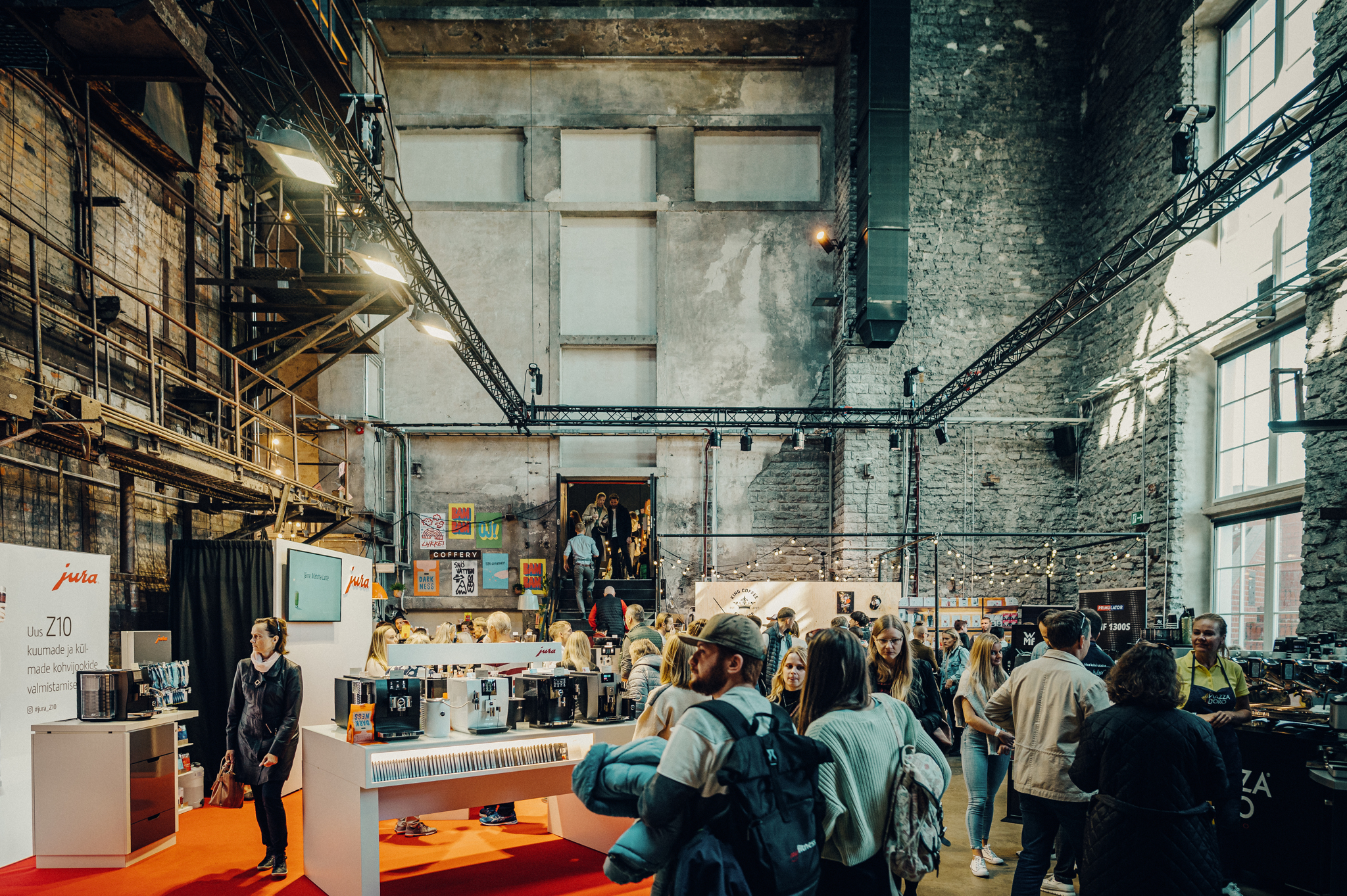
marekmetslaid_

marekmetslaid_
Coffee competitions will be held on both days of the festival to find the most skilled coffee professionals in two fields: The Estonian Latte Art Throwdown and The Estonian Cupping Championship. Both competitions are popular among local baristas, as well as their colleagues from neighboring countries, and at the same time quite thrilling. The finals always draw a full house, with more than 200 people in the audience. The schedule of master classes and seminars is not yet set at the time of writing this article. Last year’s most exciting event is said to have been a panel discussion of roasters from Finland, Germany and Romania – and other top roast masters in the audience – that touched on topics like starting a roastery and the different tricks to roasting.
Meet the organizer: Profexpo
Tallinn Coffee Festival is organized by Profexpo – holding food events since 1993. Of all their events, Tallinn FoodFair has the longest history and the most recognition. Another popular current event is their bread festival.
The organizers strive to keep the event exciting, relevant and meaningful for both participants and visitors. More and more exhibitors from further and further afield want to be seen at the festival. For guests who’ve come a longer way, the festival venue’s location on the border of the city center gives it added value – with both Tallinn’s UNESCO World Heritage Old Town and the hip Kalamaja district within walking distance.
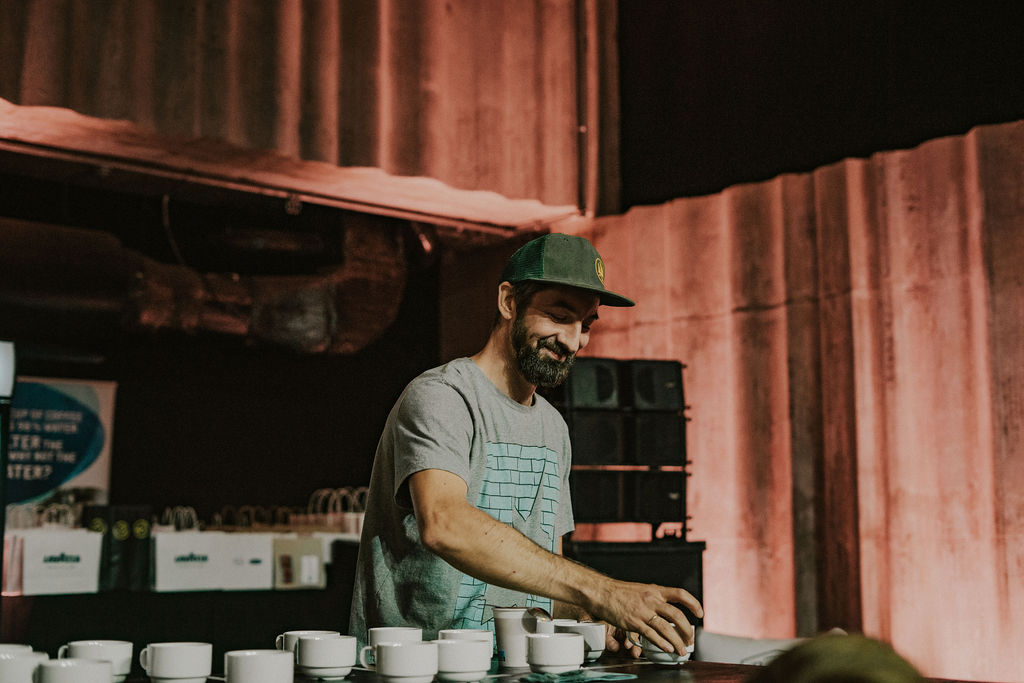
marekmetslaid_
“Just as passionately as coffee roasters devote themselves to roasting their coffees, I devote myself to organizing the festival. I want people to like going there. I want to make our festival a pleasant but also practical and meaningful experience,” Kennet Sarv, the festival’s main organizer, concludes.









NO COMMENT